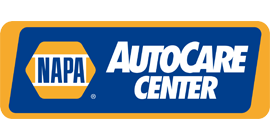
Archive for November 2022To Fix or Not To Fix (Tire Repair)Posted November 27, 2022 9:42 AMYou know that sinking feeling when you realize one of your tires has a problem. It may be making an odd noise or behaving oddly when you're driving. You may hit a pothole or curb and one suddenly goes flat. Or you may head back to your vehicle and discover it has one tire deflated without a clue of what must have happened to it. With a lot of different tires hitting the streets these days, the issue of whether to have a tire repaired or replaced can be tricky, and we strongly recommend you have a trained technician help you make that decision. One of the most common causes of flat tires is picking up a screw or nail in the tread area. Many of those can be patched and plugged if the puncture isn't more than ¼ inch/6 mm in diameter. Most tires can handle two of this type of repair, but any more and you should buy a new tire. If there's a puncture or bulge in the sidewall or shoulder, the rule of thumb is it's not repairable. The sidewall doesn't have the reinforcements that the tread area does. In fact, any puncture that's more than a ½ inch/12 mm away from the edge of the tread should not be fixed. Many newer vehicles have no spare tires (to save weight and fuel) and instead have a type of tire called "run-flat." Sometimes, the only way you know they're deflated is when the tire pressure monitor alerts the driver. Driving on them more than 50 miles/80km can render them un-repairable. They may be fixable if you pulled off to the side of the road before driving on them too long. Our technicians can evaluate whether they can be driven further or should be replaced. Other vehicles with no spare include a can of tire sealant and a compressor. If you use it, tire experts say to have the tire professionally repaired as soon as possible. If you have had a flat tire, try not to drive on it unless it's necessary to get your vehicle away from a dangerous situation. Our technicians can evaluate any tire you may be having problems with and recommend whether repair or replacement is the best option. Your safety is riding on your tires. Auto Authority LLC Your Vehicle's Hissy Fit (AC System)Posted November 20, 2022 7:47 AMWhen you hear hissing sounds coming from your vehicle, you might start thinking the worst. One type of hissing coming from around your air conditioner may be a normal sound, or it could be a sign of serious trouble. First - the normal sound. When you turn off your vehicle, the refrigerant goes from its high-pressure side to the low-pressure side. Some of those noises are normal. But when it hisses all the time, that's another story. One cause could be that the refrigerant is leaking. Air conditioners are fairly complex systems that involve various pumps, hoses, valves and motors. When your air conditioner is cooling, the refrigerant changes from a gas to a liquid and back. That refrigerant is under pressure, and there are many places it can leak from. A hissing sound can also be a failed valve in your air conditioner's compressor. It is what controls the refrigerant's pressurization. It's important to have this fixed fairly quickly after it develops a problem because when it isn't, that can lead to more extensive—and expensive—repairs. If you hear screeching coming from your air conditioner at the same time you hear hissing, your compressor may be on its last legs. It could also be a defective clutch. Any time you hear a noise you haven't routinely heard before, bring your vehicle to us so a technician can check the various components and properly repair the problems. Air conditioning systems are complex and are best handled by a professional with the right tools and equipment. When your AC has a hissy fit, let us cool it off and you at the same time. Auto Authority LLC Let's Clear Some Things Up (Headlight Restoration)Posted November 13, 2022 10:58 AMYou know how exposing your skin to sunlight can cause sunburn and other unhealthy things. Sunlight can also create major problems for your headlights. After they've been exposed to ultraviolet light, acrylic headlights can yellow and fog due to oxidation. And when that happens, less light can pass through the plastic, reducing the effectiveness—and safety—of your headlights. It's not just the UV light that causes headlights to turn cloudy. Road grime and debris gets kicked up and can scratch the plastic, diffusing the light that should pass through them when they're clear. Plus, when your vehicle was new from the factory, the headlights had watertight seals all around to prevent moisture from getting into them and fogging them up with water vapor. Just like clouds can hide the sun, tiny water molecules can diffuse the light from your headlight bulbs. Sure, you could buy replacement parts and start fresh. But the good news is many vehicle repair facilities can restore your original headlights to perform like they did when you first bought your vehicle. Here's how it works:
Visibility at night is vital for safe driving, and if your headlights aren't performing up to their potential, the less you'll be able to see ahead of you. There are many advantages of having your headlights restored rather than buying new or aftermarket replacements. It's friendlier to the planet since plastics are made of oil, so it's reducing the amount of plastic that is manufactured. And it's usually cheaper to have your headlights restored rather than replaced. Consider headlight restoration a way to literally recycle those parts of your vehicle. That seems to be perfectly clear! Auto Authority LLC More than Pads and Rotors (Brake Caliper Replacement)Posted November 6, 2022 9:54 AMYou might be familiar with brake pads and rotors, two components of your vehicle's brakes that have to be regularly serviced. Here's another important component of your brakes: the calipers. Calipers are used in disc brakes, the type of brakes now found in most recently manufactured vehicles. A caliper is the part of the brakes that squeezes the brake pads against the discs, or rotors, which turn with your wheels. There are different kinds of calipers, but the basic principle is the same. You press down the pedal, brake fluid activates a piston or pistons that squeeze the brake pads against the disc and the friction slows down your vehicle. While modern vehicles have a warning system to let you know it's time to get your brakes checked, your brake light usually goes on when your fluid level is low or your fluid pressure is low. But you may have to look out for signals your calipers are the problem. If your vehicle pulls to one side when you brake, that could be a sign that one caliper isn't working right. If you smell a burning odor coming from a wheel after a trip, there might be too much pressure from a caliper. Grinding or squealing when you brake is another signal that it may be time to bring in your vehicle so we can check your brakes. One way to minimize brake issues is regular inspection. Have them periodically looked at when you bring in your vehicle for an oil change. The good news is brake issues are more likely to be caused by pads or rotors wearing out. Calipers last a lot longer, but even they will need replacing every so often. Auto Authority LLC | ||
SearchArchiveNovember 2011 (5)December 2011 (4) January 2012 (5) February 2012 (3) March 2012 (5) April 2012 (4) May 2012 (4) June 2012 (5) July 2012 (5) August 2012 (4) September 2012 (4) October 2012 (4) November 2012 (5) December 2012 (4) January 2013 (4) February 2013 (5) March 2013 (4) April 2013 (4) May 2013 (4) June 2013 (4) July 2013 (5) August 2013 (4) September 2013 (4) October 2013 (4) November 2013 (4) December 2013 (5) January 2014 (4) February 2014 (4) March 2014 (4) April 2014 (4) May 2014 (5) June 2014 (4) July 2014 (5) August 2014 (4) September 2014 (5) October 2014 (4) November 2014 (4) December 2014 (5) January 2015 (4) February 2015 (4) March 2015 (4) April 2015 (5) May 2015 (2) June 2015 (6) July 2015 (4) August 2015 (4) September 2015 (4) October 2015 (5) November 2015 (4) December 2015 (3) February 2016 (2) March 2016 (4) April 2016 (4) May 2016 (5) June 2016 (4) July 2016 (5) August 2016 (4) September 2016 (4) October 2016 (5) November 2016 (4) December 2016 (4) January 2017 (5) February 2017 (4) March 2017 (4) April 2017 (4) May 2017 (4) June 2017 (4) July 2017 (4) August 2017 (5) September 2017 (3) October 2017 (5) November 2017 (4) December 2017 (3) January 2018 (5) February 2018 (3) March 2018 (4) April 2018 (5) May 2018 (3) June 2018 (4) July 2018 (5) August 2018 (4) September 2018 (5) October 2018 (4) November 2018 (4) December 2018 (1) March 2019 (3) April 2019 (33) May 2019 (4) June 2019 (5) July 2019 (4) August 2019 (4) September 2019 (5) October 2019 (4) November 2019 (4) December 2019 (5) January 2020 (5) February 2020 (4) March 2020 (5) April 2020 (2) May 2020 (2) July 2020 (1) August 2020 (5) September 2020 (4) October 2020 (4) November 2020 (5) December 2020 (4) January 2021 (6) February 2021 (4) March 2021 (4) April 2021 (4) May 2021 (5) June 2021 (4) July 2021 (4) August 2021 (4) September 2021 (4) October 2021 (5) November 2021 (3) December 2021 (5) January 2022 (6) February 2022 (4) March 2022 (4) April 2022 (4) May 2022 (5) June 2022 (4) July 2022 (5) September 2022 (4) October 2022 (5) November 2022 (4) December 2022 (4) January 2023 (5) February 2023 (4) March 2023 (4) April 2023 (5) May 2023 (4) June 2023 (4) July 2023 (5) August 2023 (4) September 2023 (3) October 2023 (1) January 2024 (1) February 2024 (4) April 2024 (1) May 2024 (4) June 2024 (5) July 2024 (4) August 2024 (4) September 2024 (5) October 2024 (4) November 2024 (4) December 2024 (4) | CategoriesTire Rotation and Balancing (4)Fluids (10)Tires and Wheels (4)Parts (1)Maintenance (17)Automotive News (5)Shocks & Struts (4)Wheel Bearings (2)Service Standards (4)Fuel System (8)Tire Pressure Monitoring System (1)Air Conditioning (11)Headlamps (6)Safety (3)Diesel Maintenance (1)Inspection (5)Battery (13)Fuel Economy (8)Alignment (7)Brakes (17)Keys to a long lasting vehicle (2)Service Intervals (2)Exhaust (10)Timing Belt (5)Auto Safety (5)Transmission (5)Fuel Saving Tip: Slow Down (2)What Customers Should Know (83)Alternator (7)Check Engine Light (4)Steering (11)Dashboard (1)Windshield Wipers (3)Cooling System (9)Drive Train (4)Oil Change (9)Customer Detective Work (1)Older Vehicles (1)Winter Prep (5)Safe Driving (1)Spark Plugs (2)Suspension (2)Tires (12)Winter Tires (1)Water Pump (2)TPMS (3)Differential Service (2)Trip Inspection (2)Cabin Air Filter (2)Fuel Pump (1)Brake Service (6)PCV Valve (1)Transfer Case Service (1)Shocks and Struts (3)Engine Air Filter (3)Fuel Filter (1) | |
Partners








What our clients are saying about us
We have established longterm and stable partnerships with various clients thanks to our excellence in solving their automotive needs!
Absolutely the best mechanic I have ever been to in my 40 years on this planet. Honest, trustworthy, and reliable. I will definitely be back.

These Guys (and Gals!) are great. Love them. Trust them. If you are looking for a REPUTABLE mechanic for your car or truck, look no more. Just go there and see what I mean.
